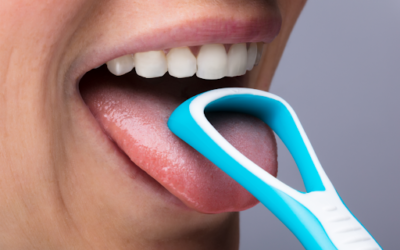Dry Mouth, also called xerostomia, is when you have a decrease in saliva production resulting in, well, a dry mouth. Not only is this physically uncomfortable, it also has a number of negative effects on your oral health.
Dry Mouth & Oral Health
Saliva is essential to various aspects of your oral health. It has antimicrobial properties and works to break down food bits and flush them out of your mouth, helping to keep your teeth clean and preventing tooth decay and gum disease. Because of this, dry mouth can cause halitosis, gingivitis, and cavities.
Causes of Dry Mouth
There are a number of factors that can cause dry mouth. Here are the most common ones.
- Dehydration
- Certain medications
- Certain medical conditions, such as diabetes, HIV, Parkinson’s disease, and for patients undergoing radiation therapy
- Smoking
- Pregnancy
- Stress
Remedies for Dry Mouth
Doing the following can help to reduce and manage dry mouth in many people. If you try these measures and still have persistent dry mouth, talk to your dentist for recommendations on how to treat your condition.
Stay Hydrated
A major factor for dry mouth is dehydration, so make sure that you’re sipping water regularly throughout the day, and up your water intake even more when you are doing strenuous activities such as hiking or playing sports. Get in the habit of drinking water with every meal.
Avoid Caffeine & Tobacco Products
If you are experiencing dry mouth, now is a good time to cut out caffeine consumption and smoking. Both caffeine and tobacco products inhibit saliva production, so avoiding these products can make a big difference in your body’s ability to make saliva.
Chew Sugar-Free Gum
Chewing sugar-free gum or sucking on sugar-free hard candies stimulates salivary flow, increasing your mouth’s moisture. Many people find that this helps manage dry mouth symptoms–just make sure that you’re choosing a healthy, sugar-free option!
Use a Humidifier
Running a humidifier in your bedroom while you sleep at night creates more moisture in the air. This moist environment can help to reduce dry mouth discomfort.
Visit the Dentist Regularly
Regular dental hygiene appointments are important to check for potential issues caused by dry mouth, such as gingivitis and tooth decay. Make sure that you do not skip your recommended dental checkups, especially if you suffer from dry mouth and may be more likely to develop oral health problems if left unchecked.




